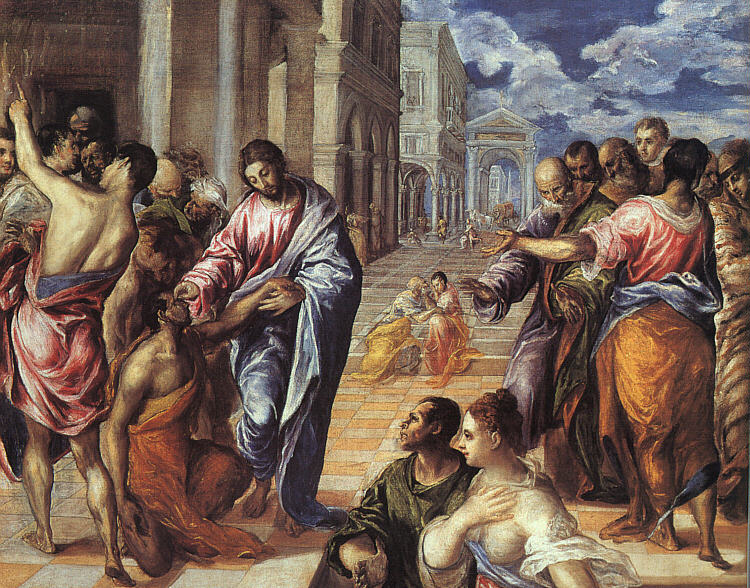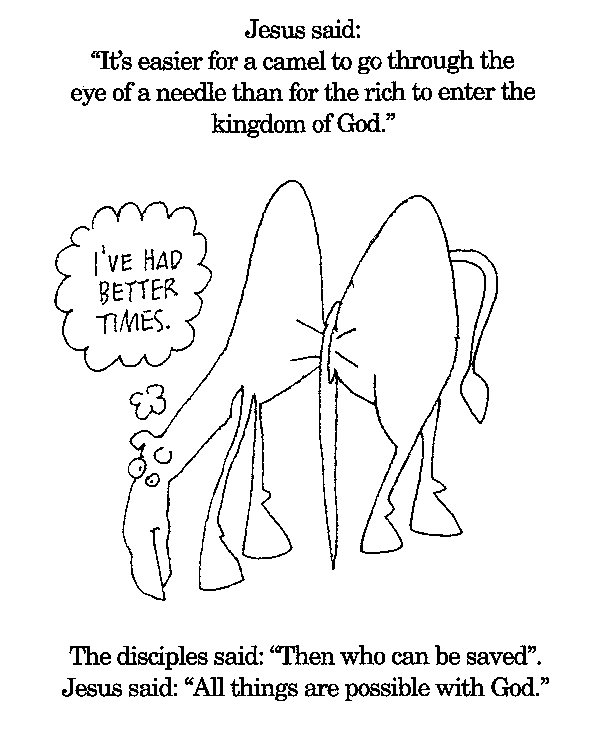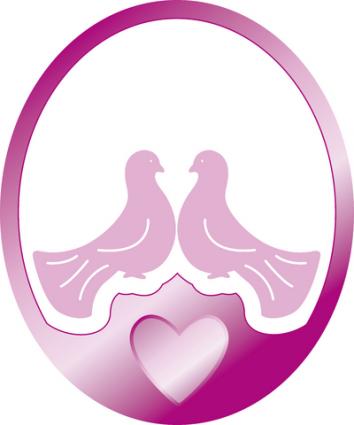XXVII SUNDAY IN ORDINARY TIME - Genesis 2:18-24
In today’s language of the politically correct, we do not know any more what marriage is. With the ideology of the gender spreading evermore abroad, there are people who want to consider any union between two people sealed with a recognised contract as marriage. And we find gay and lesbian marriages being celebrated, promoted and given the same rights as true marriage between two heterosexual people. For a Christian marriage is more than a contract; indeed, it is a sacrament, that is a covenant of love open to life. A homosexual relationship is by definition a relationship that has closed its doors to life. It is an investment at zero profit, with no possibility of continuation and development. In such a relationship, both of them are centred exclusively on themselves, enclosed in a dungeon which does not allow to look into the future.
God has a different project for human beings, that’s why he made them man and woman, needing each other in order to become complete and to go on giving the life that they freely received.
We have read Genesis 2:4b-25 as the story of creation, where God is presented as a potter, working with the clay to create man, and then as a magician to create the woman out of the man. However, instead of reading this passage as a factual narrative of the creation, we should listen to it as a reflexion on the relationship between man and woman and as a presentation of the big guidelines on marriage.
Human beings are linked to the whole creation; it is as if they come from the clay of the ground. However, they have something special that sets them aside, since in them there is a spirit - the breath of God. Having created the man, God provided him with everything needed for his wellbeing. Since the beginning, God never deserted man but remained attentive to his deepest needs. Doing that, God noticed that the man was not happy and he realised that “it is not good that the man should be alone” and so he decided to “make him a helper as his partner” (Gn 2:18). Man and woman are called to be partners and to help each other. In God’s plan, there is a reciprocity that cannot be ignored. It is looking into each other, that each one of them recognises himself/ herself. One is the mirror of the other. They are the same, yet different, and it is in their difference, that each one becomes the completion of the other. The woman was taken to the man by God as if he is the marriage maker. And when he received the woman, he recognised immediately that “this at last is bone of my bones and flesh of my flesh” (Gn 2:23), meaning, we are the same: body, mind, heart and soul. They have the same dignity and the same rights; they have received the same call and were entrusted with the same mission; and they were presented with the same promise of salvation and eternal life (see 1 Cor 11:11-12).
Then, in a short sentence, Genesis 2:24, we find God’s plan for marriage: “Therefore a man leaves his father and his mother and clings to his wife, and they become one flesh”. And these words are so important, that Jesus repeated them and so did Paul (Ef 5:31). God’s project is that “they become one flesh”. This being one flesh implies the sexual relationship but it goes far beyond it. God’s project speaks of a communion of body, heart and soul that will make of them the true images of God. This project can be accomplished in two steps: a) leave, b) cling. They must leave, in order to start anew. They must break with the past and all that tied them to the past. They cannot depend on their parents any longer. They have to stand on their own, being committed to each and responsible for each other. And they must break with all kinds of individualism and selfishness. Without this first step, the second one will become impossible. Then, they must cling to each other. And this implies a process because it cannot happen all at once. In order to be united in an ever-deepening communion, they must have respect for each other, that is, they must affirm each other, bringing out the best in each other. They must learn to listen to each other, they must be able to dialogue and to share everything. Thus, walking together through the path of life, they will become one, every day they will become more and more one.
This project of God can only be carried out with God’s grace. Let’s ask God’s blessings upon all married couples, so that they may be true witnesses of God’s love.






